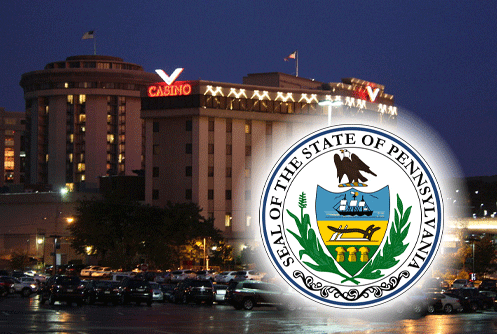Pennsylvania is second only to Nevada in commercial casino revenues.
Minimum Gambling Age: 21
Gambling Regulator: Pennsylvania Gaming Control Board
Top Cities: Philadelphia Pittsburgh


Gаmblіng іn Реnnѕуlvаnіа іnсludеѕ саѕіnо gаmblіng, thе Реnnѕуlvаnіа Lоttеrу, hоrѕе rасіng, Віngо, аnd ѕmаll gаmеѕ оf сhаnсе соnduсtеd bу nоnрrоfіt оrgаnіzаtіоnѕ аnd tаvеrnѕ undеr lіmіtеd сіrсumѕtаnсеѕ. Аlthоugh саѕіnоѕ gаmіng hаѕ оnlу bееn lеgаl fоr аbоut а dесаdе, Реnnѕуlvаnіа іѕ ѕесоnd оnlу tо Nеvаdа іn соmmеrсіаl саѕіnо rеvеnuеѕ. Оn Осtоbеr 26, 2017, thе Ноuѕе раѕѕеd а bіll thаt wіll lеgаlіzе оnlіnе gаmblіng.
Pennsylvania is officially the fourth state in the US to legalize online poker and/or online casinos. Mid-term this year there will be more online casinos than online poker rooms in Pennsylvania. More of the state’s casino interests applied for and have received a permit to offer online slot play and table games. Most of the license holders have formed technology partnerships already, though at the time of writing we are still waiting for the first online casinos in Pennsylvania to open.
The first PA online sports betting apps appeared recently was led by SugarHouse in May 2019. On this way Sugar House became the first PA sports betting site to open their doors, albeit with a soft-launch. They still need to gain final approval from the PGCB to do a full launch, which is expected to take place on June 1st, 2019.
In 2004, the Pennsylvania Race Horse Development and Gaming Act was passed which legalized slot machines at fourteen locations beginning in 2006. The act authorized licenses for seven horse track racing locations, five standalone casinos, and two resort casinos. All casinos can have up to 5,000 machines, except the resort licensees, which can have up to 600. The Act also mandated that two of the five stand-alone casinos be located in Philadelphia, one in Pittsburgh, and the remaining two at-large.
Casinos in Pennsylvania have been permitted to operate table games since July 2010. Stand-alone and racinos may have up to 250 table games, while resort casinos are limited to a maximum of 50 table games. Table games legislation increased the number of slots that resort casinos may have, from 500 to 600 machines. The 4th and newest license category, satellite casinos, allows existing operators to establish smaller, secondary locations.
Some of the most polular casinos are:
The Pennsylvania Lottery has been available throughout the Commonwealth since 1972. In addition to regular drawings, the state also participates in Powerball and Mega Millions games and sells scratchcard tickets.
Draw games offered by the Pennsylvania Lottery include Pick 2, Pick 3, Pick 4, Pick 5, Treasure Hunt, Cash 5, and Match 6, as well as the multi-state games Cash4Life, Mega Millions, and Powerball. The “Pick” games are standard fixed-payout games, while Treasure Hunt, Cash 5, and Match 6 are jackpot-style games similar to Mega Millions and Powerball. The lottery also offers the annual raffle game, Millionaire Raffle.
Charitable gaming law is found under Chapter 901 of the state law, though Act 71 greatly expanded the existing statutes. This means that most of the nonprofit gaming for charity foundations is done through bingo games.
Until now, daily fantasy sports (DFS) haven’t been exactly legal in the state of Pennsylvania, but that didn’t mean you couldn’t play. State lawmakers spent the last few years considering a number of options in terms of legalizing and regulating DFS. FanDuel and DraftKings enjoy better than 90 percent market share across the United States. Things are no different in Pennsylvania, where FanDuel and DraftKings are the two most popular sites.
Pennsylvania does not have an exception for “social” gambling. But, in a final twist for poker players, the state of Pennsylvania does not seem to have any charges on the books for players. So, in theory, if everyone in the game is a player – and no one is operating the game for a profit – a private game of poker, while technically against the letter of the law, would seem to invite no risk of criminal charge.
Licensees are currently required to hold a licensed for a brick and mortar casino. There are additional requirements involving taxation, the purchase of 5-year licenses, player protection and game fairness testing. These are overseen by the Pennsylvania Gaming Control Board.